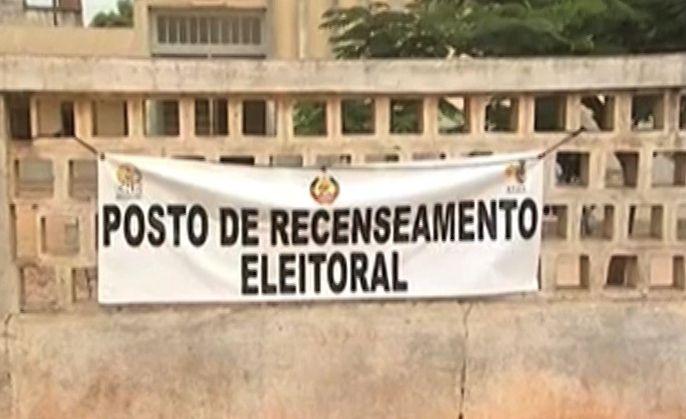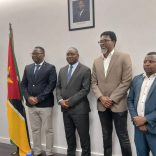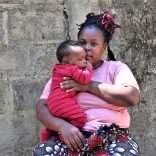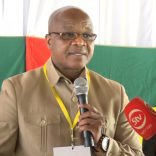Mozambique: Minister meets Venâncio Mondlane's delegation on legalising new party Anamalala
CNE proposes delay in voter registration, submits “three scenarios” for Mozambique elections

Asked about the possibility of postponing the elections into next year, Cuinica said he remains optimistic “that the minimum conditions will be created in time”. File photo: TVM
Mozambique’s National Elections Commission (CNE) on Friday submitted a formal proposal to the government to delay the start of voter registration ahead of the presidential, parliamentary and provincial elections, scheduled for 15 October.
The voter registration period determined by the government runs from 1 April to 15 May – but with much of the central provinces still under water following Cyclone Idai, the CNE decided “by consensus” to propose a delay, the Commission’s spokesperson, Paulo Cuinica, told a Maputo press conference.
The mention of “consensus” means that CNE members appointed by the ruling Frelimo Party and by the two opposition parties, Renamo and the MDM (Mozambique Democratic Movement), agree that the original timetable for voter registration is no longer practicable.
The registration is accompanied by a voter education campaign, which is a festive occasion. Cuinica did not think this would be appropriate at a time when citizens across the centre of the country are mourning the death of loved ones, and the destruction of their homes.
Cuinica declined to say what alternative dates for the registration, if any, the CNE has proposed to the government. He added that the CNE did say that altering the registration dates should not affect the year of the elections. Thus the CNE is insisting that the elections be held this year.
He added that the CNE has submitted three scenarios to the government, but refused to tell the reporters what they are. However, Friday’s issue of the independent newssheet “Carta de Mocambique” has already revealed these scenarios.
One is to keep the voting date as 15 October, the second is to postpone it by a month, to 15 November, and the third is for a postponement to 15 December. Cuinica refused to say whether the “Carta de Mocambique” article is accurate.
“At an opportune moment, when the INGC (National Disaster Management Institute) determines that the conditions have been created, we can consider one of the scenarios,” said Cuinica.
He said the CNE has been in consultation with the political parties, the INGC, and the National Meteorological Institute (INAM), and all had agreed it would be “prudent” to delay the voter registration.
Usually schools are used both as voter registration posts and as polling stations. But the latest government statistics are that almost 3,000 classrooms have been destroyed in the cyclone and the floods. Cuinica said this meant the CNE would have to use tents or build registration posts out of local materials.
Asked about the possibility of postponing the elections into next year, Cuinica said he remains optimistic “that the minimum conditions will be created in time”.
Any postponement of the elections creates legal problems. The current electoral law states that the general elections must be held within the first fortnight of October. Postponement requires amending the law.
There is a good reason for the October cut-off date – any date later than mid-October is within the Mozambican rainy season. In mid-November, and even more so in mid-December, heavy rains are almost certain to be happening somewhere in the country, causing logistical nightmares for election organisers.
The extent of the devastation in central Mozambique must raise serious doubts as to whether the elections are feasible any time this year. But postponing them into 2020 would violate the constitution, which states that the term of office of the President and of the parliament is five years. The current term of office expires in January 2020.












Leave a Reply
Be the First to Comment!
You must be logged in to post a comment.
You must be logged in to post a comment.